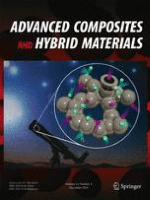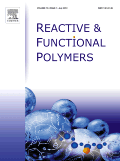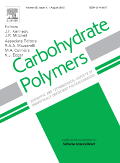
BIOPOLYMERS
Scope & Guideline
Transforming Knowledge into Applications
Introduction
Aims and Scopes
- Biopolymer Characterization and Modification:
Research in this area focuses on the physicochemical properties, structural analysis, and modification techniques of biopolymers. This includes exploring the relationships between the molecular structure of biopolymers and their functional properties. - Applications in Drug Delivery and Biomedical Engineering:
This scope emphasizes the use of biopolymers in drug delivery systems, tissue engineering scaffolds, and wound healing materials. Researchers investigate how biopolymeric systems can be designed for specific medical applications. - Sustainable Materials Development:
The journal highlights studies on the development of biodegradable and environmentally friendly materials derived from biopolymers. This includes the exploration of waste materials and by-products in biopolymer synthesis. - Nanotechnology and Biopolymer Composites:
Research involving the incorporation of nanomaterials into biopolymeric matrices to enhance their properties and functionalities. This includes the creation of nanocomposites for various applications, such as food packaging and medical devices. - Innovative Processing Techniques:
The journal covers advancements in processing techniques such as 3D printing, electrospinning, and additive manufacturing of biopolymers, focusing on the implications of these methods on material properties and applications.
Trending and Emerging
- Advanced Drug Delivery Systems:
Recent publications have increasingly focused on the development of sophisticated drug delivery systems utilizing biopolymers, reflecting a growing interest in targeted therapies and personalized medicine. - Smart and Responsive Biopolymer Materials:
There is a rising trend in research on smart biopolymers that respond to environmental stimuli (e.g., pH, temperature), showcasing potential for applications in drug delivery and tissue engineering. - Integration of Nanotechnology with Biopolymers:
The incorporation of nanotechnology in biopolymer research is on the rise, with studies exploring how nanomaterials can enhance the properties of biopolymers for various applications, including biomedical devices. - Sustainability and Waste Utilization:
Research focusing on the utilization of waste materials and by-products for biopolymer production is increasingly prominent, indicating a shift towards sustainability in material development. - Interdisciplinary Research Approaches:
There is a growing trend towards interdisciplinary research that combines biopolymer science with fields such as biotechnology, materials science, and nanotechnology to foster innovative applications.
Declining or Waning
- Traditional Polymer Chemistry:
There has been a noticeable decline in publications focused solely on traditional polymer chemistry without the integration of biopolymer applications. The journal is shifting towards more applied research rather than fundamental studies. - Basic Biopolymer Synthesis Techniques:
Research focusing primarily on basic synthesis techniques without innovative applications or modifications is becoming less common, indicating a trend towards more complex and application-driven studies. - Conventional Food Packaging Applications:
The emphasis on biopolymers for conventional food packaging applications may be waning as more researchers explore novel applications in biomedical fields and advanced materials. - Non-Biodegradable Polymer Studies:
The journal is increasingly favoring studies on biodegradable materials, leading to a decline in the publication of works related to non-biodegradable polymer systems.
Similar Journals

Advanced Composites and Hybrid Materials
Pioneering Research in Hybrid MaterialsAdvanced Composites and Hybrid Materials, published by SPRINGER NATURE, is a premier journal dedicated to the field of materials science, with a keen focus on innovative composite materials and their applications. With its ISSN 2522-0128 and E-ISSN 2522-0136, the journal has established itself as a cornerstone for researchers and professionals in materials chemistry, ceramics, and polymers, achieving an impressive Q1 ranking across multiple categories in 2023. In particular, it ranks #3 out of 161 in Polymers and Plastics and #4 out of 127 in Ceramics and Composites, highlighting its influential presence within the academic community. The journal aims to provide a cutting-edge platform for the dissemination of groundbreaking research and developments from 2018 to 2024, facilitating knowledge sharing and collaboration among experts. While currently adopting a traditional access model, the significance and impact of research published in this journal cannot be overstated, making it an essential resource for anyone interested in advancing the field of composite materials.

REACTIVE & FUNCTIONAL POLYMERS
Driving Innovation in Polymer Technologies and ApplicationsREACTIVE & FUNCTIONAL POLYMERS, published by Elsevier, is a leading journal in the field of polymer science, focusing on the innovative development and application of reactive and functional polymers. With an impressive impact demonstrated through its classification in various prestigious categories, including Q1 rankings in Chemical Engineering, Chemistry, and Materials Chemistry, this journal serves as an essential resource for researchers and professionals seeking to explore the latest advances in polymer research. With a broad scope that encompasses topics from biochemistry to environmental chemistry, and a convergence of significant findings from 1995 to 2024, REACTIVE & FUNCTIONAL POLYMERS fosters academic dialogue and collaboration among scientists. The journal also features Open Access options, ensuring that groundbreaking research is readily available to a global audience. By consistently publishing high-quality articles, it not only enriches the scientific community but also drives innovation across various industries reliant on polymer technologies.

Polymer Reviews
Transforming insights into impactful solutions.Polymer Reviews, published by Taylor & Francis Inc, is an esteemed journal dedicated to the intricate and evolving field of polymer science. With its ISSN 1558-3724 and E-ISSN 1558-3716, the journal has established a significant presence among researchers and practitioners alike, evidenced by its impressive categorization in the Q1 quartiles across multiple disciplines, including Biomedical Engineering, Materials Chemistry, and Renewable Energy. Since its inception in 2006 and continuing through 2024, Polymer Reviews has consistently aimed to advance the knowledge base of polymer applications and innovations, providing a platform for comprehensive review articles that stimulate further research and inspire practical solutions. The journal, ranking within the top percentile across several Scopus categories, underscores its impact and relevance in a rapidly developing scientific landscape. Though not an open-access journal, it remains a vital resource for those invested in the future of materials science and engineering.

Journal of Polymer & Composites
Fostering Dialogue Between Academia and Industry in Composite Research.Journal of Polymer & Composites, with ISSN 2321-8525 and E-ISSN 2321-2810, is an esteemed academic journal published by STM JOURNALS, dedicated to the advancement of knowledge in the rapidly evolving fields of polymer science and composite materials. The journal serves as a pivotal platform for researchers and professionals, offering cutting-edge research articles, reviews, and case studies that explore innovative developments and applications in polymer chemistry, material science, and engineering. Although currently lacking an impact factor citation, the journal aims to foster dialogue among academia and industry partners, addressing the latest trends and breakthroughs that drive the field forward. With a commitment to scholarly excellence, the Journal of Polymer & Composites is positioned as an essential resource for enhancing the understanding of polymer composites and their multifaceted applications. Notably, STM JOURNALS' reputation for quality publications underscores the journal’s importance in facilitating impactful research and educational initiatives worldwide.

POLYMERS FOR ADVANCED TECHNOLOGIES
Innovating Through Cutting-Edge Polymer ResearchPOLYMERS FOR ADVANCED TECHNOLOGIES is a premier peer-reviewed journal published by WILEY, focusing on cutting-edge research in the field of polymers and plastics. Since its inception in 1990, the journal has established itself as a critical resource for academics and industry professionals alike, reflecting advancements and innovations in polymer science and technology. With an impressive Scopus ranking of #45 out of 161 in the Materials Science category and a 72nd percentile ranking, it ranks in the Q2 quartile for its relevance and impact within the polymers field. The journal's comprehensive scope encompasses recent developments and trends in polymer applications, synthesis, and characterization, making it essential reading for researchers looking to advance their work within this dynamic area. Researchers can submit their work in the UK, where the journal is published, and while it does not currently offer open-access options, its robust impact factor highlights the significance of the research it disseminates. Join the community of experts pushing the boundaries of polymer science by engaging with POLYMERS FOR ADVANCED TECHNOLOGIES. Continuous exploration and innovation await those who contribute to and learn from the journal’s diverse array of studies.

JOURNAL OF BIOMATERIALS SCIENCE-POLYMER EDITION
Bridging science and application in polymer biomaterials.JOURNAL OF BIOMATERIALS SCIENCE-POLYMER EDITION, published by Taylor & Francis Ltd, is a distinguished scholarly journal dedicated to the exploration of biomaterials and their applications in various fields such as bioengineering, biomedical engineering, and biophysics. With an ISSN of 0920-5063 and an E-ISSN of 1568-5624, this journal offers a platform for researchers and professionals to share innovative findings and methodologies that advance the science of polymer-based biomaterials. The journal's impact within the academic community is underscored by its notable Scopus rankings, including a Q2 status in both Biomedical Engineering and Biophysics as of 2023, reflecting its significant contribution to advancing knowledge and practice in these fields. The scope of the journal spans from fundamental research to applications in medical devices and regenerative medicine, ensuring comprehensive coverage of the latest trends and breakthroughs. Although it does not currently offer open access options, the journal remains a pivotal resource for students, researchers, and professionals committed to the development and application of biomaterials in healthcare. For further details, the journal is based in Abingdon, United Kingdom, at 2-4 Park Square, Milton Park, OX14 4RN.

Nanocomposites
Elevating Knowledge in Nanocomposite ScienceNanocomposites, published by Taylor & Francis Ltd, is a leading open-access journal dedicated to the interdisciplinary field of nanomaterials and their applications in composites. With its ISSN 2055-0324 and E-ISSN 2055-0332, the journal has established itself as a premier platform for disseminating high-quality research since its inception in 2015. It is notable for its impressive Q1 rankings across various categories, including Ceramics and Composites, Materials Chemistry, Mechanical Engineering, and Mechanics of Materials, reflecting its significant impact on the scientific community. The journal is recognized for its rigorous peer-review process and rapid publication times, making it an essential resource for researchers and professionals seeking to advance knowledge in the synthesis, characterization, and application of nanocomposite materials. With an open access policy implemented in 2017, Nanocomposites ensures that cutting-edge research is accessible to a global audience, fostering collaboration and innovation across disciplines. Emphasizing the critical role that nanocomposites play in advancing technology, this journal invites contributions that push the boundaries of current understanding and application.

INTERNATIONAL JOURNAL OF POLYMER ANALYSIS AND CHARACTERIZATION
Pioneering research in analytical chemistry and polymers.International Journal of Polymer Analysis and Characterization is a distinguished scholarly publication dedicated to the field of polymer science, with a focus on innovative methodologies and significant advances in the analysis and characterization of polymeric materials. Published by Taylor & Francis Ltd in the United Kingdom, this journal serves as a vital resource for researchers, professionals, and students deeply engaged in Analytical Chemistry, Chemical Engineering, and Polymer Science. With a convergence spanning from 1995 to 2024, it holds a Q3 ranking in the 2023 category quartiles for its valuable contributions to the fields of Analytical Chemistry, Chemical Engineering, and Polymers and Plastics. Despite being a non-open access publication, its rigorous peer-review process and comprehensive coverage of current trends ensure that the journal remains a crucial platform for disseminating impactful research. The journal is indexed in various databases, underscoring its relevance and quality in the academic community. Exploratory studies and articles that push the boundaries of polymer analysis find a welcoming home within these pages, making it an essential read for those aiming to stay at the forefront of polymer research.

POLYMER JOURNAL
Exploring the Dynamics of Polymers and PlasticsPOLYMER JOURNAL, published by SpringerNature in the United Kingdom, is a premier academic platform dedicated to the field of polymer science. Since its inception in 1971, this journal has become an essential resource for researchers and professionals interested in the latest advancements in materials chemistry, polymers, and plastics. With its robust H-index and a consistent ranking in the top quartiles of its categories—Q2 in both Materials Chemistry and Polymers and Plastics—POLYMER JOURNAL demonstrates a strong impact in the scientific community. It holds significant recognition in Scopus rankings, occupying the 68th percentile in Materials Chemistry and the 67th percentile in Polymers and Plastics. The journal's commitment to publishing high-quality research articles enables it to serve as a key reference point for innovative studies, theoretical developments, and practical applications in polymer science. Although it is not an open-access journal, researchers and students gain valuable insights through its extensive archives and rigorous peer-reviewed content, making POLYMER JOURNAL a vital source of knowledge for anyone engaged in this dynamic field.

Carbohydrate Polymers
Unveiling the potential of carbohydrate polymers.Carbohydrate Polymers is a prestigious academic journal, published by ELSEVIER SCI LTD, that plays a vital role in the field of materials chemistry, organic chemistry, and polymer science. With its Q1 category rankings in these domains, this journal serves as a critical platform for disseminating high-quality research, innovative methodologies, and significant advancements in carbohydrate-based polymers. Since its inception in 1981 and continuing until 2025, it has fostered critical discussions and collaborations among researchers, professionals, and students worldwide. Although it does not offer open access, its rigorous peer-review process ensures that only the most impactful studies are published. By highlighting new developments in the synthesis, characterization, and application of carbohydrate polymers, Carbohydrate Polymers consistently contributes to the enhancement of knowledge and technology within its field, making it an essential resource for anyone working at the intersection of chemistry and materials science.